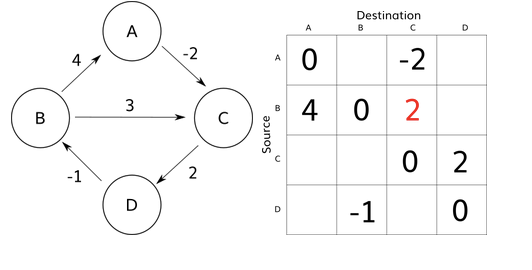Floyd-Warshall
It is a shortest path algorithm that calculates the shorted path between all pairs of vertices.
- Negative edges are allowed.
- No negative cycles.
- , where V is the number of vertices.
Pseudo-code
let V = number of vertices of graph
let dist[V][V] = 2D array of minimum distances (the answers)
for each vertex v
dist[V][V] <- 0
for each edge (u, v)
dist[u][V] <- weight(u,V)
for k from 1 to V
for i from 1 to V
for j from 1 to V
if dist[i][j] > dist [i][k] + dist[k][j]
dist[i][j] <- dist[i][k] + dist[k][j]Example
Here is a graph with four vertices (V = 4) and dist[4][4]:
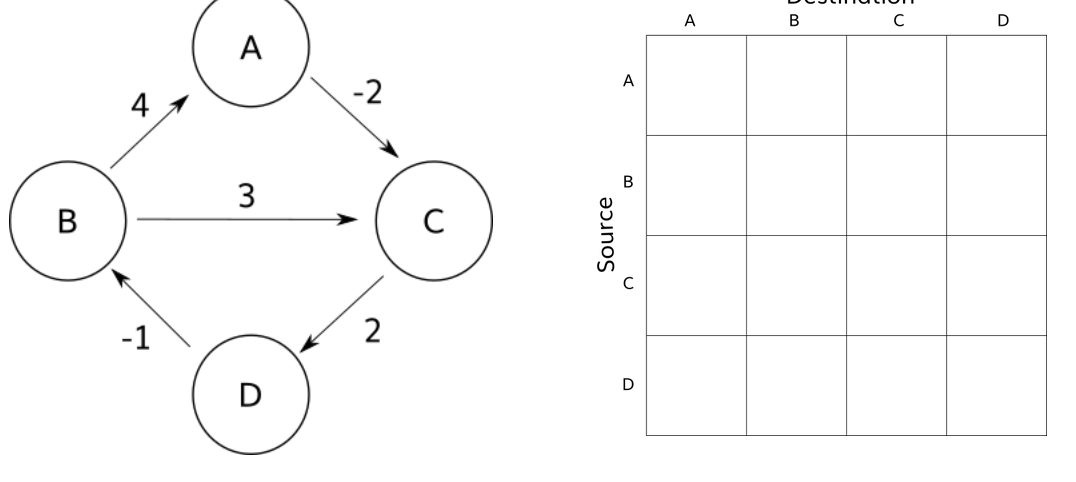
for each vertex v
dist[v][v] <- 0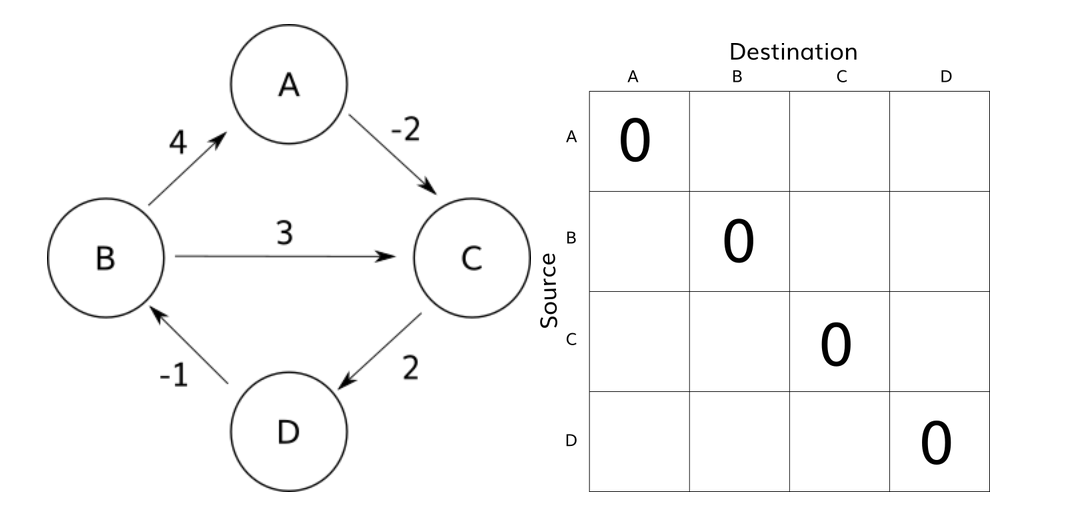
for each edge (u,v)
dist[u][v] <- weight(u,v)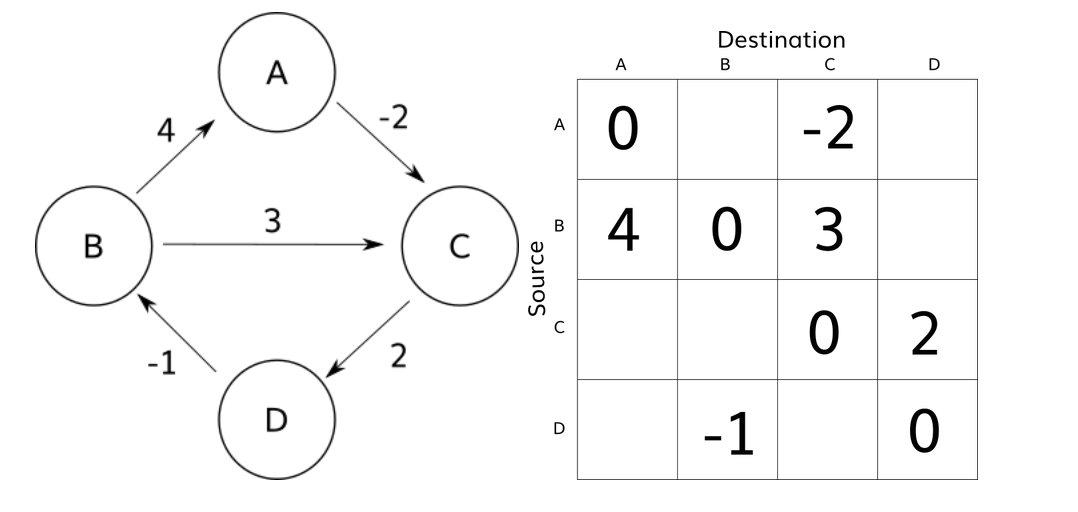
for k from 1 to V
for i from 1 to V
for j from 1 to V
if dist[i][j] > dist[i][k] + dist[k][j]
dist[i][j] <- dist[i][k] + dist[k][j]If k = A, i = A and j = A:
dist[i][j] > dist[i][k] + dist[k][j]
dist[A][A] > dist[A][A] + dist[A][A]
0 > 0 + 0This statement is false. Therefore, dist does not get updated:
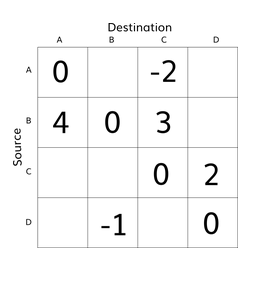
If k = A, i = A and j = B then there is not yet a value for A->B. It is assumed to be infinite:
dist[i][j] > dist[i][k] + dist[k][j]
dist[A][B] > dist[A][A] + dist[A][B]
infinity > 0 + infinityThis statement is false. Therefore, dist does not get updated.

If k = A, i = B and j = C:
dist[i][j] > dist[i][k] + dist[k][j]
dist[B][C] > dist[B][A] + dist[A][C]
3 > 4 + -2This statement is true. Therefore, dist gets updated:
